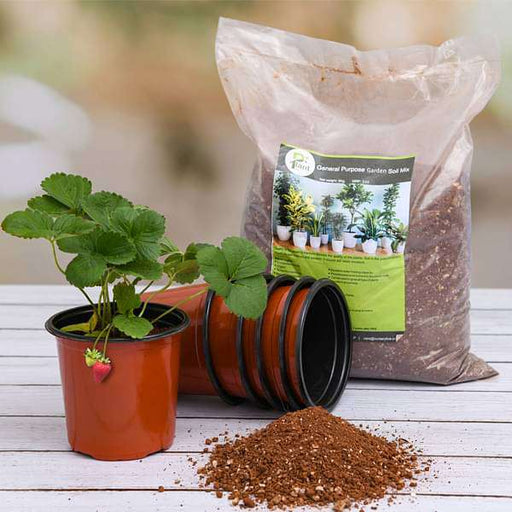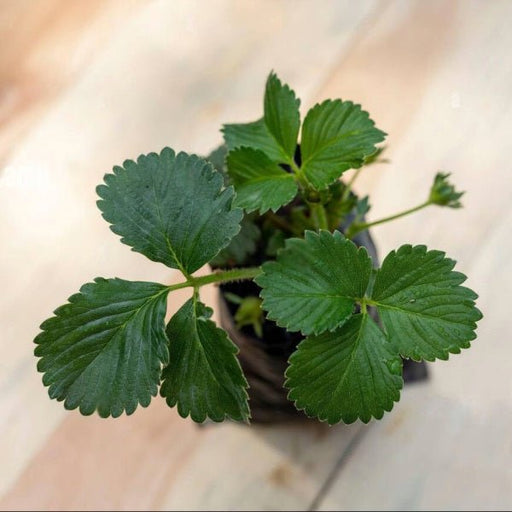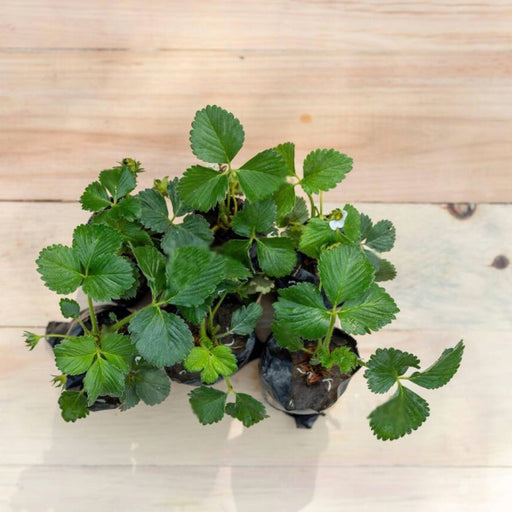You may also like
-
 Save 45%
Original price ₹ 1,014Original price ₹ 1,014Original price ₹ 1,014Current price ₹ 559₹ 559Current price ₹ 559
Save 45%
Original price ₹ 1,014Original price ₹ 1,014Original price ₹ 1,014Current price ₹ 559₹ 559Current price ₹ 559Top 4 Die Hard Succulents Pack
Top 4 Die Hard Succulents Pack Transform your indoor or outdoor space with our Top 4 Die Hard Succulents Pack, featuring a curated selecti...
View full detailsOriginal price ₹ 1,014Original price ₹ 1,014Original price ₹ 1,014Current price ₹ 559₹ 559Current price ₹ 559Save 45% -

 Save up to 50%
Original price ₹ 829Original price ₹ 829Original price ₹ 829₹ 499₹ 499Current price ₹ 499
Save up to 50%
Original price ₹ 829Original price ₹ 829Original price ₹ 829₹ 499₹ 499Current price ₹ 499Mini Succulent Garden Pack
Mini Succulent Garden Pack Transform your space with our Mini Succulent Garden Pack, featuring a delightful collection of 4 any variety beautiful s...
View full detailsOriginal price ₹ 829Original price ₹ 829Original price ₹ 829₹ 499₹ 499Current price ₹ 499Save up to 50% -

 Save 24%
Original price ₹ 998Original price ₹ 998Original price ₹ 998Current price ₹ 759₹ 759Current price ₹ 759
Save 24%
Original price ₹ 998Original price ₹ 998Original price ₹ 998Current price ₹ 759₹ 759Current price ₹ 759Set of 2 Bonsai Looking Grafted Adeniums
Set of 2 Bonsai Looking Grafted Adeniums Transform your indoor or outdoor space with our exquisite Set of 2 Bonsai Looking Grafted Adenium...
View full detailsOriginal price ₹ 998Original price ₹ 998Original price ₹ 998Current price ₹ 759₹ 759Current price ₹ 759Save 24% -
 Save 22%
Original price ₹ 897Original price ₹ 897Original price ₹ 897Current price ₹ 699₹ 699Current price ₹ 699
Save 22%
Original price ₹ 897Original price ₹ 897Original price ₹ 897Current price ₹ 699₹ 699Current price ₹ 699Pack of 3 Good Luck Jade Plants in Ceramic Pots
Pack of 3 Good Luck Jade Plants in Ceramic Pots Bring a touch of nature into your home with our Pack of 3 Good Luck Jade Plants, featuring...
View full detailsOriginal price ₹ 897Original price ₹ 897Original price ₹ 897Current price ₹ 699₹ 699Current price ₹ 699Save 22% -

 Sold out
Original price ₹ 1,720Original price ₹ 1,720Original price ₹ 1,720Current price ₹ 659₹ 659Current price ₹ 659
Sold out
Original price ₹ 1,720Original price ₹ 1,720Original price ₹ 1,720Current price ₹ 659₹ 659Current price ₹ 659Strawberry Gardening Kit
Strawberry Gardening Kit Transform your garden into a berry paradise with our Strawberry Gardening Kit! This all-in-one kit includes every...
View full detailsOriginal price ₹ 1,720Original price ₹ 1,720Original price ₹ 1,720Current price ₹ 659₹ 659Current price ₹ 659Sold out -

 Save 27%
Original price ₹ 1,028Original price ₹ 1,028Original price ₹ 1,028Current price ₹ 749₹ 749Current price ₹ 749
Save 27%
Original price ₹ 1,028Original price ₹ 1,028Original price ₹ 1,028Current price ₹ 749₹ 749Current price ₹ 749Portulaca Garden Pack (4 Plants + 4 Black Pots)
Portulaca Garden Pack (4 Plants + 4 Black Pots) Transform your garden into a vibrant oasis with our Portulaca Garden Pack, featuring four ...
View full detailsOriginal price ₹ 1,028Original price ₹ 1,028Original price ₹ 1,028Current price ₹ 749₹ 749Current price ₹ 749Save 27% -

 Save 75%
Original price ₹ 1,592Original price ₹ 1,592Original price ₹ 1,592Current price ₹ 399₹ 399Current price ₹ 399
Save 75%
Original price ₹ 1,592Original price ₹ 1,592Original price ₹ 1,592Current price ₹ 399₹ 399Current price ₹ 399Pack of 6 Strawberry Saplings to Taste the Homegrown Magic
Pack of 6 Strawberry Saplings to Taste the Homegrown Magic Experience the joy of home gardening with our Pack of 6 Strawberry Saplings! Th...
View full detailsOriginal price ₹ 1,592Original price ₹ 1,592Original price ₹ 1,592Current price ₹ 399₹ 399Current price ₹ 399Save 75% -
Indoor Plants Collection
Best Sellers
-

 Save 35%
Original price ₹ 1,739Original price ₹ 1,739Original price ₹ 1,739Current price ₹ 1,130₹ 1,130Current price ₹ 1,130
Save 35%
Original price ₹ 1,739Original price ₹ 1,739Original price ₹ 1,739Current price ₹ 1,130₹ 1,130Current price ₹ 1,130Best 6 Plants for Perfect Indoor Garden
Best 6 Plants for Perfect Indoor Garden Transform your living space into a lush oasis with our curated collection of the Best 6 Plants for a...
View full detailsOriginal price ₹ 1,739Original price ₹ 1,739Original price ₹ 1,739Current price ₹ 1,130₹ 1,130Current price ₹ 1,130Save 35% -

 Save up to 50%
Original price ₹ 829Original price ₹ 829Original price ₹ 829₹ 499₹ 499Current price ₹ 499
Save up to 50%
Original price ₹ 829Original price ₹ 829Original price ₹ 829₹ 499₹ 499Current price ₹ 499Mini Succulent Garden Pack
Mini Succulent Garden Pack Transform your space with our Mini Succulent Garden Pack, featuring a delightful collection of 4 any variety beautiful s...
View full detailsOriginal price ₹ 829Original price ₹ 829Original price ₹ 829₹ 499₹ 499Current price ₹ 499Save up to 50% -

 Save 30%
Original price ₹ 2,142Original price ₹ 2,142Original price ₹ 2,142Current price ₹ 1,499₹ 1,499Current price ₹ 1,499
Save 30%
Original price ₹ 2,142Original price ₹ 2,142Original price ₹ 2,142Current price ₹ 1,499₹ 1,499Current price ₹ 1,4995 Best Fragrant Plants
5 Best Fragrant Plants Transform your garden or indoor space into a fragrant paradise with our curated selection of the 5 Best Fragrant Plants. Th...
View full detailsOriginal price ₹ 2,142Original price ₹ 2,142Original price ₹ 2,142Current price ₹ 1,499₹ 1,499Current price ₹ 1,499Save 30% -

 Save 24%
Original price ₹ 998Original price ₹ 998Original price ₹ 998Current price ₹ 759₹ 759Current price ₹ 759
Save 24%
Original price ₹ 998Original price ₹ 998Original price ₹ 998Current price ₹ 759₹ 759Current price ₹ 759Set of 2 Bonsai Looking Grafted Adeniums
Set of 2 Bonsai Looking Grafted Adeniums Transform your indoor or outdoor space with our exquisite Set of 2 Bonsai Looking Grafted Adenium...
View full detailsOriginal price ₹ 998Original price ₹ 998Original price ₹ 998Current price ₹ 759₹ 759Current price ₹ 759Save 24% -
 Save 45%
Original price ₹ 1,014Original price ₹ 1,014Original price ₹ 1,014Current price ₹ 559₹ 559Current price ₹ 559
Save 45%
Original price ₹ 1,014Original price ₹ 1,014Original price ₹ 1,014Current price ₹ 559₹ 559Current price ₹ 559Top 4 Die Hard Succulents Pack
Top 4 Die Hard Succulents Pack Transform your indoor or outdoor space with our Top 4 Die Hard Succulents Pack, featuring a curated selecti...
View full detailsOriginal price ₹ 1,014Original price ₹ 1,014Original price ₹ 1,014Current price ₹ 559₹ 559Current price ₹ 559Save 45% -

 Save 30%
Original price ₹ 1,905Original price ₹ 1,905Original price ₹ 1,905Current price ₹ 1,334₹ 1,334Current price ₹ 1,334
Save 30%
Original price ₹ 1,905Original price ₹ 1,905Original price ₹ 1,905Current price ₹ 1,334₹ 1,334Current price ₹ 1,3345 Best Indoor Plants Pack
5 Best Indoor Plants Pack Transform your living space into a lush oasis with our '5 Best Indoor Plants Pack.' This carefully curated collection fe...
View full detailsOriginal price ₹ 1,905Original price ₹ 1,905Original price ₹ 1,905Current price ₹ 1,334₹ 1,334Current price ₹ 1,334Save 30% -

 Save 25%
Original price ₹ 1,296Original price ₹ 1,296Original price ₹ 1,296Current price ₹ 972₹ 972Current price ₹ 972
Save 25%
Original price ₹ 1,296Original price ₹ 1,296Original price ₹ 1,296Current price ₹ 972₹ 972Current price ₹ 972Set of 4 Evergreen Air Purifier Plant Pack
Set of 4 Evergreen Air Purifier Plant Pack Transform your indoor space into a lush, green oasis with our Set of 4 Evergreen Air Purifier Pla...
View full detailsOriginal price ₹ 1,296Original price ₹ 1,296Original price ₹ 1,296Current price ₹ 972₹ 972Current price ₹ 972Save 25%
Trending Collections
Save 40% with Gardening Solutions
Turmeric is a spice that comes from the turmeric plant, which is a member of the ginger family. It is commonly used in Indian and Southeast Asian cuisine, as well as traditional Ayurvedic and Chinese medicine. Turmeric has a deep yellow-orange color and a distinct earthy, slightly bitter taste.
One of the most well-known compounds in turmeric is curcumin, which has anti-inflammatory and antioxidant properties. It is widely believed that curcumin can help alleviate symptoms of arthritis, reduce inflammation, and improve brain function. Additionally, turmeric has been used to treat other conditions such as digestive issues, skin problems, and infections.
Turmeric can be consumed in a variety of ways. It is often added to curries or rice dishes to provide color and flavor, or mixed with hot water, milk, or tea to create a healing tonic. Turmeric supplements are also available in capsule form for those who want to incorporate the benefits of turmeric into their daily routine.
When purchasing turmeric, it is important to choose a high-quality product. Look for turmeric that is organic and free from additives or fillers. It should also be bright in color and have a strong, fragrant aroma.
Overall, turmeric is a versatile and beneficial spice with numerous health benefits. Whether in the form of a delicious meal or a supplement, incorporating turmeric into your routine can help improve your overall well-being.
Anti-Inflammatory Properties
Turmeric contains curcumin, a compound known for its potent anti-inflammatory effects. It can help reduce inflammation and pain related to arthritis, inflammatory bowel diseases, and other conditions.
Antioxidant Abilities
Turmeric is rich in antioxidants, which can help neutralize harmful free radicals, thus protecting the body from oxidative stress, aging, and diseases such as cancer.
Heart Health
Turmeric may improve endothelial function, reducing the risk of cardiovascular disease. It can also help regulate blood pressure and reduce LDL (bad) cholesterol.
Brain Health
Turmeric can cross the blood-brain barrier and has neuroprotective properties. It might delay or reverse brain diseases, improve memory and has been studied for its potential effects on Alzheimer's disease.
Digestive Health
The anti-inflammatory properties of turmeric can benefit digestive health by reducing inflammation in the gut and supporting digestion. It's often used to soothe symptoms of irritable bowel syndrome (IBS) and other digestive disorders.
Joint Health
Turmeric's anti-inflammatory properties make it a popular natural remedy for conditions like arthritis. It can help reduce joint pain and inflammation.
Cancer Prevention
Research suggests that curcumin in turmeric can prevent and potentially treat cancer. It can affect cancer growth, development, and spread at the molecular level.
Depression and Mood
Studies have shown that turmeric may have potential as a treatment for depression. It could boost serotonin and dopamine levels in the brain, enhancing mood.
Skin Health
Applied topically or taken orally, turmeric can improve skin health due to its anti-inflammatory and antioxidant properties. It's used in treatments for conditions like acne, eczema, and psoriasis.
Blood Sugar Control
Turmeric might help in the management of blood sugar levels and could play a role in preventing and treating type 2 diabetes due to its anti-inflammatory and antioxidant benefits.
FAQ
What is turmeric, and where does it come from?
Turmeric, scientifically known as Curcuma longa, is a perennial herb native to India and Southeast Asia. Turmeric belongs to the ginger family and is commonly used as a spice in Indian cuisine.
What are the health benefits of turmeric?
Turmeric has a wide range of health benefits, thanks to its active ingredient curcumin. It has anti-inflammatory, antioxidant, and antimicrobial properties, and has been found to be beneficial in managing several conditions, including arthritis, diabetes, heart disease, and cancer.
How is turmeric used in cooking?
Turmeric is commonly used as a spice in Indian cuisine, especially in curries and other spicy dishes. It is also used in pickles, rice dishes, and soups, and is sometimes added to smoothies and juices for its health benefits.
Can turmeric be used for skin care?
Yes, turmeric can be used for skin care. It is a natural antiseptic and has been found to be effective in treating acne, reducing wrinkles, and brightening the complexion. Turmeric can be used in face masks, scrubs, and creams.
What is the best way to consume turmeric?
The best way to consume turmeric is to include it in your diet regularly. You can add turmeric to your cooking, or take turmeric supplements. Turmeric supplements are available in capsule form and can be found at health food stores and online.
Is turmeric safe to consume during pregnancy?
Yes, turmeric is generally safe to consume during pregnancy when used in moderate amounts as a spice in cooking. However, pregnant women should avoid taking turmeric supplements, as they may interfere with certain medications and cause complications.
What are the side effects of turmeric?
Turmeric is generally safe when consumed in moderate amounts. However, high doses of turmeric may cause gastrointestinal problems, such as nausea and diarrhea. Turmeric may also interact with certain medications, so it is important to talk to your doctor before taking turmeric supplements.
How is turmeric used in Ayurveda?
Turmeric has been used in Ayurveda for centuries for its medicinal properties. It is believed to balance the three doshas, or energies, in the body, and is used to treat a wide range of conditions, including arthritis, indigestion, and skin problems.
Can turmeric be used to treat arthritis?
Yes, turmeric has been found to be effective in treating arthritis due to its anti-inflammatory properties. It can reduce joint pain and stiffness, and improve mobility.
Can turmeric be used to treat diabetes?
Yes, turmeric may be beneficial in managing diabetes. Studies have shown that turmeric can help regulate blood sugar levels and improve insulin sensitivity.
How is turmeric used in traditional medicine?
Turmeric has been used in traditional medicine for centuries to treat a variety of conditions, including digestive issues, skin problems, and respiratory infections. It is also used as a natural remedy for colds and flu.
Can turmeric be used to prevent cancer?
Turmeric has been found to have anticancer properties and may help prevent the growth and spread of cancer cells. However, more research is needed to determine the optimal dose and effectiveness of turmeric in preventing cancer.
Similar Categories
No matching collections available.































